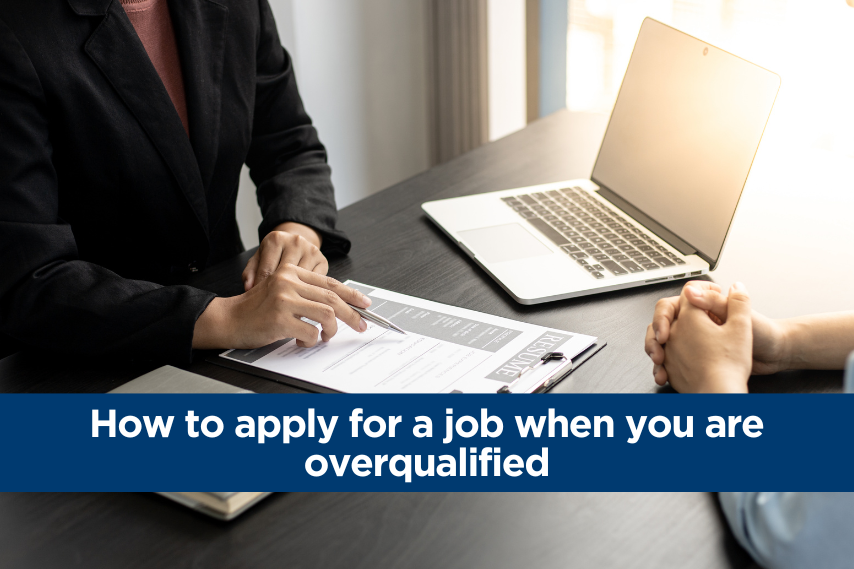
Being told you’re “too qualified” for a job can feel frustrating. Employers may worry you’ll get bored, won’t take direction, or leave as soon as something better comes along. But being overqualified doesn’t mean you can’t land the role, it just means you need a smart strategy.
Here are Skillset’s top tips for applying when you exceed the requirements:
1. Recraft Your CV
Tailor your CV to the role:
- Highlight only relevant roles and responsibilities.
- Use the language from the job ad or position description.
- Consider a skills-based format instead of listing roles in reverse chronological order.
- Downplay job titles by focusing on achievements and skills.
- Include only education and training that relates to the role.
Tip: Review your LinkedIn profile too, make sure it aligns with the role and doesn’t scream “overqualified.”
2. Explain Why You Want the Role
Your cover letter should clearly state why you’re interested. Be upfront:
- Do you want more flexibility?
- Are you transitioning to a new career?
- Do you have a passion for the industry?
If redundancy led you to apply, mention it briefly and focus on the positive reasons you want the job. Be prepared to answer this question again during interviews, practice a short, confident response.
3. Communicate the Value You Bring
Show how your experience benefits the employer:
- Research their goals and challenges.
- Explain how you can help achieve their objectives.
- Offer examples like mentoring junior staff, improving processes, or supporting growth strategies.
Make it clear you’re not just applying for any job, you’re applying because you can add value.
4. Stay Humble
Tone matters. Avoid sounding arrogant or overconfident in your cover letter or interviews. Emphasize your willingness to learn and grow in the role. This reassures employers that you’re committed and adaptable.
The Bottom Line
Being overqualified can be an advantage if you position yourself correctly. Tailor your CV, explain your motivation, highlight your value, and approach the process with humility. These steps will help employers see you as the right fit, not just the most experienced candidate.
You may also like

How to manage your nerves in a job interview
Let’s face it, job interviews can be nerve-racking. […]

Getting Career Ready for 2026
If you’re thinking about putting your job search […]
 Skillset would like to acknowledge and pay respect to the traditional custodians of the lands on which we work.
Skillset would like to acknowledge and pay respect to the traditional custodians of the lands on which we work.We are honoured to be on the ancestral lands of those whose cultures are among the oldest living cultures in human history. We pay respect to the Elders, past, present and to the younger generation of the community who will be the future leaders in years to come.

